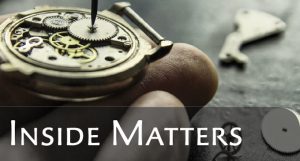 For two airlines, each with
For two airlines, each with
a different thrust, quality reigns supreme
[T]rain and educate your people as if someone’s life depended on it.
By Cheryl Koch, CPCU, ARM, AAI, ACSR, AFIS, and Mary Belka, CPCU, ARM, ARe, RPLU, CIC
Most road warriors, such as ourselves, will say they hate to travel, but if the pandemic taught us anything, it’s to be careful what you wish for, because you might just get it. Being “grounded” can be a great thing, such as when it defines your way of life as being fully present in the moment and not looking too far ahead … or backward.
But during COVID, being grounded from the skies for us meant being disconnected from our colleagues, our clients and, in some cases, our work. One can only imagine what it was like to have been running a business dependent on travel, such as airlines, car rental agencies, cruise lines, or hotels. Insurance agencies were among the “lucky ones” who were allowed to continue to operate as essential businesses.
Our mutual airline of choice is Delta, which is celebrating its 100th birthday this year; and a recent article about its CEO, Ed Bastian, published in Fortune magazine, points out many of the similarities between leading the country’s largest (based on revenue) and most profitable airline, and running a top-notch independent agency.
Invest in your people. In February, Bastian faced the toughest test of his 26-year career at Delta when he was notified of the accident that took place at Toronto’s airport in which a Delta flight landed upside down, passengers dangling in their seats, from what was now the ceiling, held in only by their seatbelts. Miraculously, no one was killed as the crew and first responders performed just as they had been trained.
Is there a lesson there for us as independent agents? Most certainly there is, and it’s a pretty basic one you have heard us mention often: Train and educate your people as if someone’s life depended upon it.
Imagine you’re one of the 76 passengers on board, wondering if one of the ways your airline survived the pandemic was to cut back on training. Not a pretty thought. Likewise, our agency clients should always know that we consider ongoing training, education, and professional development a top priority, not a necessary evil, and certainly not something undertaken solely as a compliance exercise due to state-mandated continuing education requirements.
Running a great agency—or airline—requires the greatest performances from all associates, especially when tragedy strikes, as it so often does in our business. The last thing your clients should worry about when they lose a loved one, or their home, or their business, is how well trained or knowledgeable your agency employees are, and whether or not they can be counted on to help them through their ordeal.
Be accountable; own the issue—and the message. Bastian became the face of Delta’s immediate, transparent, and compassionate response to what could have been a terrible PR blow to the brand. He did not blame recent FFA (Federal Aviation Administration) cuts, he reiterated that a full investigation was underway, and that Delta was cooperating and hoping for the opportunity to learn and improve once the investigation was complete.
In the meantime, Delta acted quickly in reaching out to all passengers—not just those who were injured. Some litigation has begun; yet even experienced plaintiff attorneys have praised Bastian’s commitment to paying $30,000 for each passenger on the flight, payment of medical bills, and personal letters to each passenger in the days following the incident as “early” and “rare.”
In our own organizations, stepping up and doing all one can to mitigate the immediate aftermath of a difficult situation demonstrates strength and creates “PR capital”. The true test of leadership for agencies is the opportunity to put our own training, expertise, and caring to work for our clients during their time of need, for instance, when a claim occurs. Bastian showed that treating this opportunity as a privilege to serve clients when things go wrong is the real test of leadership.

Reward your people. Delta is one of the least unionized of all the major airlines, although they likely do not have the highest paid employees, and despite the fact they have perhaps the most generous profit-sharing plan in their industry. When Delta does better, so do their employees, sharing 10% of the airline’s first $2.5 billion in adjusted profit and 20% of anything above that amount. Still, is that sufficient to keep people employed? Probably not.
In the last few years, we have seen in our industry more “poaching” of people, particularly account managers, than ever. It would be naïve to assume that money was the only reason people defected. You stay with a business when you “feel the love” and respect every day, not just on the 15th and the last day of the month. Many agencies claim to “treat their people like family”—but there are a lot of dysfunctional families out there and sometimes people leave them too.
So, if it’s not money that motivates people to stay, what is it? We believe it’s a sense of belonging and knowing how your effort, each and every day, contributes to the success of that business. It’s knowing that you are considered an asset, not an expense. If management gives 110% to each employee, those employees will return 125% or more to the business.
We have long advocated a program called “Points, Plaques, Pins and Praise,” which are small, but meaningful, moments of thanks, recognition and gratitude for a task or job well done. Yes, the fifth P—Pay— is important to all of us as well, but seldom is that the only consideration when deciding to stay or leave.
Know your audience. Delta’s strategy is not to be a low-cost airline, but rather to cater to those who are willing to pay more when they feel they are getting more. People are willing to pay a premium for superior service. They do it all the time. In Bastian’s words, “We knew we’d never be successful just aiming for the lowest cost. That was a race to the bottom.”
Likewise, clients of independent agencies know they’re not paying the lowest price for their insurance protection; they’re reminded of it every time they turn on the radio or television or access social media. But they’re willing to do it if the right conditions are met. And those conditions do not include dealing with unlicensed, offshore, back-office clerical workers who perform so-called “grunt work” that’s beneath the dignity of the agency’s “real” staff. If it’s truly “grunt work,” stop doing it! Eliminate or automate it, but don’t simply outsource it to others who are not as highly trained or well educated as your own staff.
Delta doesn’t intend to be all things to all travelers, nor should we kid ourselves that every buyer of insurance is a potential good customer for an independent agency. Know who you are and what kinds of clients are the best fit for your organization.
In the book Nuts!, the story of Southwest Airlines, authors Kevin and Jackie Freiberg document the phenomenal success of this “no frills” airline that never tried to compete with the likes of Delta or United. Want to fly first class? Don’t choose Southwest. Want to get there safely and on time and not have to mortgage your home to do it? You’d be hard-pressed to find a better way.
Lead with passion. It probably doesn’t say on Ed Bastian’s business card that he holds the position of Head Cheerleader with Delta Air Lines, but it very well could. At 68 years of age, he still exudes enthusiasm and excitement for his employees and his company. He’s willing to celebrate their successes, both financial and personal, while knowing that in such a volatile industry, it could all end very quickly.
Similarly, at Southwest Airlines, one of their mantras was to “spend a lot more time planning parties than writing policies.” While procedures and workflow are vitally important to the smooth operation of every independent agency, it’s the celebrations that will be remembered, especially when things are tough, as they are right now with the hard market. Producers and account managers are having to deliver very tough messages to their clients each and every day. There is no joy in that, so it is all the more important that we take time to celebrate small successes when they occur.
The bottom line, as is so often the case, is that leadership matters. Have you imagined the greatest challenges you could encounter, and prepared yourself—and your staff—for handling them? What kind of leader are you and what mark will you leave on your organization and your industry?
The authors
Cheryl Koch is the owner of Agency Management Resource Group, a California firm providing training, education and consulting to producers, account managers and owners of independent agencies. She has a BA in Economics from UCLA and an MBA from Sacramento State University. She has also earned several insurance professional designations: CPCU, CIC, ARM, AAI, AAI-M, API, AIS, AAM, AIM, ARP, AINS, ACSR, AFIS, and MLIS.
Mary M. Belka is owner and CEO of Eisenhart Consulting Group, Inc., providing management and operations consulting to the insurance industry. She also is an endorsed agency E&O auditor for Swiss Re/Westport. A graduate of the University of Nebraska, Mary holds the CPCU, ARM, ARe, RPLU, CIC, and CPIW designations.




